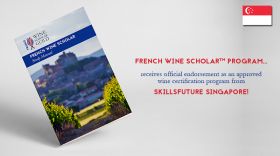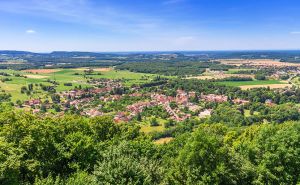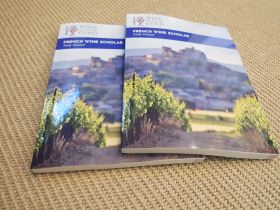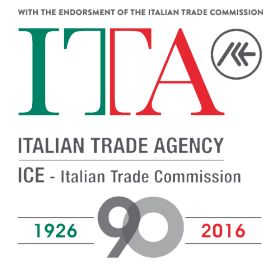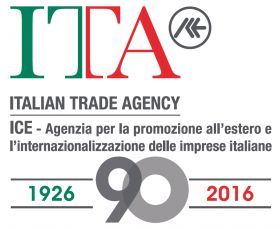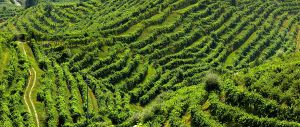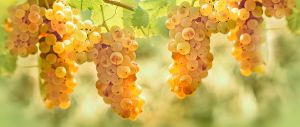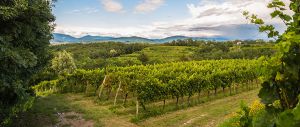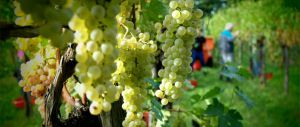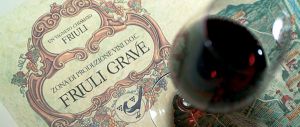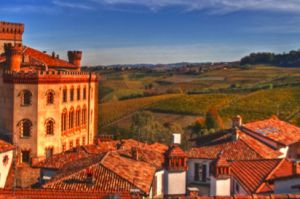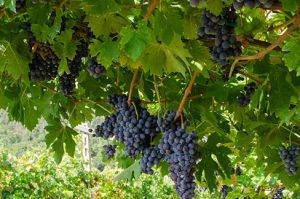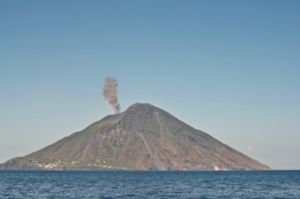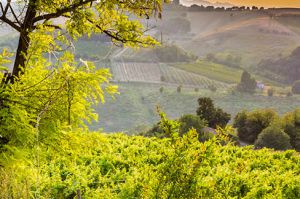BLOG
Blog
Julien Camus
Latest News
The Wine Scholar Guild’s French Wine Scholar (FWS) Program received official endorsement as an approved wine certification program from Skillsfuture Singapore! The Skillsfuture is a national movement that encourages individuals to take ownership of their skills development and lifelong learning....
Julien Camus
Latest News
The Wine Scholar Guild is excited to announce the list of 2016 top exam scorers from around the world! Bravo! French Wine Scholar Program 1. Lillian Lim (California, USA) - Score: 100% ''My certifications include: Certified Sommelier with the Court of Master Sommeliers, Certified Specialist of...
Wink Lorch
Tasting & Trends
As everywhere, it is the nature of the geography that most influences the food and drink traditions of the Jura and Franche-Comté. The diverse landscape of mountains, dense forests, high meadows, vineyards, lakes and the river plain have all shaped what the local population ate and drank....
Cathy Dangler
Wine Education & Careers
Autumn in Champagne is a spectacular time to explore the region. The countryside and vineyards are abounding in rich palettes of color and the intoxicating fall fragrance instills a unique sensorial experience. Champagne is like laughter as it fills my senses with joy, especially when the cork...
Julien Camus
Latest News
The 6th Edition of the French Wine Scholar program has just been released! The FWS manual has been fully updated and reformatted into a perfect binding (no more spiral!) with: New, custom-designed maps New charts, graphics and rich imagery Need-to-know icons now mark all AOCs that count as test...
Jeannie Boutelle
Wine Culture
Sadly, time has marched on, since the fantastic Bourgogne Immersion Trip I took with the Wine Scholar Guild lead by Andrew Jefford, October 23 – 28, 2016. Everyone on the trip was definitely a “wine nerd” but the group was composed of a mix of wine industry professionals, wine students of all...
Kathy Merchant
Wine Culture
Meeting Andrew Jefford today could easily lead one to believe that he was born knowing enormous volumes of information about the wines of the world, and has always been able to explain them in the manner of a poet laureate. As the leader of a 2016 Wine Scholar Guild study tour of Southwest France,...
Mary Kirk
Wine Culture
Lonely Planet has released their Best in Travel 2017 guide about THE places to visit in the next year…and Bordeaux tops their list as the No. 1 city destination in the world! Bordeaux contains more preserved historical buildings – such as Place de la Bourse – than any city in France aside from...
Julien Camus
Latest News
ITALIAN WINE SCHOLAR PROGRAM RECEIVES ENDORSEMENT FROM THE ITALIAN TRADE COMMISSION The Wine Scholar Guild’s Italian Wine Scholar Program received official endorsement from the Italian Trade Commission (ITA).The Italian Trade Commission is a governmental body whose role is to promote the...
Julien Camus
Latest News
Top Italian Wine Scholar student at IWEG Drinks Academy in Toronto will WIN a Study Trip Scholarship to Italy! IWEG, our exlusive Program Provider in Toronto, is pleased to announce the Italian Trade Commission in Canada as its first Gold Sponsor with the sponsorship of the new Italian Wine...
Maurizio Broggi
Wine Education & Careers
Glera is the principal grape of Prosecco sparkling wine. Originally the grape was known as Prosecco (more precisely Prosecco Tondo). The variety has an unclear origin and an even more complicated ampelographic history due to the fact that several distinct varieties have been called...
Matt Kirkland, M.D.
Wine Education & Careers
A BIT OF WINE CHEMISTRY: Lessons from Champagne Day one of the Champagne study trip initiated a discussion which continued throughout the week of factors impacting aromas and flavors in champagne. Broadly, aromas can be categorized into the impacts of grape variety, terroir, vinification, and...
Kirra Barnes
Tasting & Trends
Italian red wines may get all the attention, but insiders know that Italian whites are as varied and interesting as the country’s reds. Italy’s multitude of mountains and hills ensures wines with bright acidity—the hallmark of Italian whites. Acidity is what makes a wine food friendly, and Italian...
Maurizio Broggi
Tasting & Trends
The Super-Whites of Friuli In the late 1970s, the producer, Jermann, created Vintage Tunina, a complex blend of native and international white grapes that became iconic among Friuli’s superior white blends. Throughout the 1980s and 1990s, Jermann inspired several other Friuli producers,...
Maurizio Broggi
Tasting & Trends
Collio (or Collio Goriziano) DOC Collio’s vineyards date back to pre-Roman times; they were of renown then and are held in high esteem now. Their impressive whites are considered the finest in Friuli and are among the finest in Italy.
Maurizio Broggi
Tasting & Trends
Friuli Grave DOC Friuli Grave was previously called Grave del Friuli but is often simply referred to as Grave. This is the largest DOC, both in terms of area under vine and in production. It accounts for more than one-third of Friuli’s total wine production.
Italian Wine Scholar Course - Demo
Nebbiolo-Based Appellations of Langhe Hills in Piedmont Barolo DOCG Barolo is one of Italy’s greatest wines and is considered to deliver the highest and most powerful expression of the Nebbiolo grape. Although its origin is shrouded in mystery, its rise to stardom is not. Supposedly, the red wines...
Valentine Touzeau
Italian Wine Scholar Course - Demo
Veneto’s grape varieties are almost equally divided between white and red. More than 60% of the cultivated varieties are native or Italian grapes. Among them, the indigenous Glera, Garganega and Corvina Veronese account for almost half of Veneto’s total plantings. The western Veneto is largely and...
Italian Wine Scholar Course - Demo
The geologic evolution of the Italian landscape has always been characterized by strong volcanic activity. Italy is one of the few winemaking countries with a considerable number of vineyards growing on the slopes of ancient and extinct volcanos. Vineyards are also cultivated around active...
Italian Wine Scholar Course - Demo
Emilia-Romagna is one of the wealthiest regions in Italy and in all of Europe. It is a cultural nexus, thanks to the beautiful Romanesque and Renaissance architecture found in the cities of Bologna, Ferrara and Modena. The Rimini and Riccione beach resorts of the Adriatic are famous among the...

